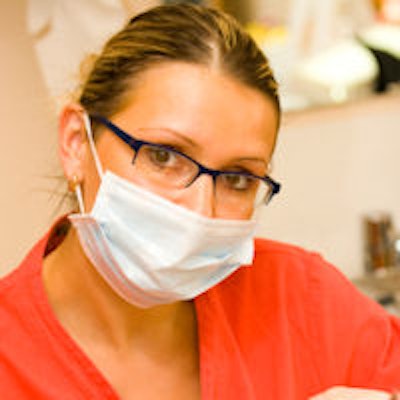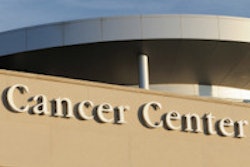
Kansas' Extended Care Permits (ECP), which allow hygienists to provide preventive dental care beyond the dental office, have improved oral healthcare in the state but aren't being utilized to their full potential, according to the ECP providers.
These findings are part of a new study that examined the perceptions of Kansas ECP dental hygienists on how these permits have impacted oral care in the state (Journal of Dental Hygiene, December 2014, Vol. 88:6, pp. 364-372).
Kansas, like many states, has struggled with the oral health disparity and focused on ways to provide preventive care to those in underserved or disadvantaged areas. In 2003, the Kansas Dental Board expanded the dental hygiene scope of practice with the Extended Care Permit I (ECP I). The model works in collaboration with a sponsoring dentist and provides services to targeted populations.
In 2007, the scope was expanded with the creation of ECP II, allowing for a greater range of locations and populations, and in 2012 Kansas introduced ECP III, which goes beyond the preventive scope of practice and allows for limited restorative dental treatment, according to the study authors. ECP III includes provisions to place temporary fillings, extract loose primary teeth, and adjust dentures.
Also in 2012, a proposition for a new model, the registered dental practitioner, along the lines of Minnesota's advanced dental therapist was introduced but did not pass legislation because of strong opposition from the Kansas Dental Association, they noted.
Meanwhile, all three ECP permits are designed to allow dental hygienists to reach populations who are unable to receive traditional dental care in a private office, yet the fundamental focus for each permit is preventive care.
"The limited restorative capacity of the ECP III has been termed a 'baby step' towards providing dental services to the underserved, and many organizations are still advocating for a midlevel dental provider in Kansas," the study authors wrote.
They noted that there has been a steady increase in ECP holders, with a 33% increase since 2008, but there are still rural populations who lack access to care. According to the Oral Health Kansas website, 189 dental hygienists have earned their ECP.
For their study, the authors included all 158 dental hygienists who were registered as ECP holders in Kansas in the summer of 2012. They mailed out surveys that included questions about demographics, areas of employment, work-related activities, and impact on oral healthcare. They received a total of 69 responses.
Respondents strongly agreed that their permits are part of a solution to access-to-care issues in Kansas (92%) and that they have a positive impact on dental care (93%). Likewise, they feel dental care has improved for the patients they serve (71%).
Nearly half of the respondents (46%) said they worked in four or more locations, including schools and Head Start centers, safety net facilities, hospitals, special needs clinic, volunteer services, nursing homes, dental clinics without a full-time dentist, homeless shelters, health departments, and Women, Infants, and Children (WIC) centers.
The respondents reported spending up to 60 hours per week performing ECP-related activities. Some (35%) reported having an ECP permit but were not using it, citing reasons for not doing so such as being unable to locate a sponsoring dentist or lack of support from local dentists.
Others stated that they would like to use it part time but were unable to find a location or opportunity. Finding time outside of a full-time private practice schedule was another limiting factor, as was the physical strain of transporting the equipment, limited funding, and clinic closures because of budget cuts.
Overall, most participants (70%) were satisfied with their current position as an ECP provider. And while nearly half (48%) agreed they were able to use their ECP to the fullest extent, these same respondents had the most perceived support from their sponsoring dentist.
Among the other half who did not feel they were using the permit to its fullest extent, the reasons were varied but included a too restrictive scope of practice for the ECP, the fact that they cannot be billed directly, lack of equipment to travel to nursing homes, and objections from dentists in their area.
When asked if their sponsoring dentist felt the ECP was a good solution to the manpower problem, 22% responded that their sponsoring dentist did not think so.
Kansas dentists also appear to be divided in their support or lack thereof for the ECP providers, the authors noted.
"Difficulty locating a sponsoring dentist was found in this study," they wrote. "Similarly, lack of support from sponsoring dentists has been noted in past research."
The dental community appears divided in the workforce model to deliver oral healthcare to the underserved Kansas populations, they noted.
The study authors concluded, however, that their study findings are limited by the self-reporting nature of survey research and the ECP III was just initiated into legislation at the time of the data collection, and they added that future research was needed to assess its impact.



















